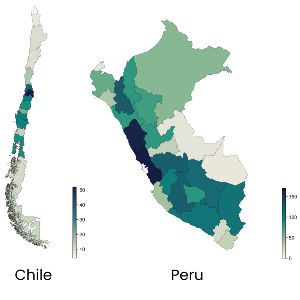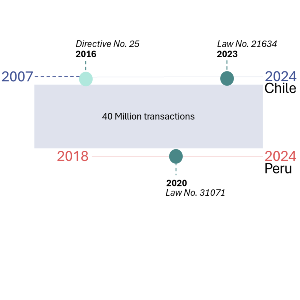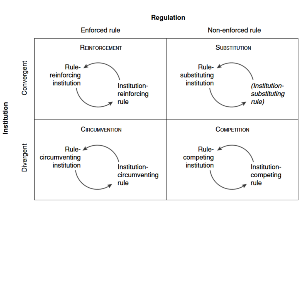Public Procurement in Chile and Peru
How national reforms institutionalize locally, and how local procurement practices relate to regional development.
How national reforms institutionalize locally, and how local procurement practices relate to regional development.

(c) Denise Gutiérrez, 2025
Public procurement represents a significant economic sector, transcending its basic function of securing goods and services to become a driver for inclusion, sustainability, and innovation. Understanding the full impact of procurement regulations on these broader objectives demands rigorous analysis and evidence-based assessment. Our research addresses two key questions: to what degree do local procurement practices align with formal rules, and how does public procurement contribute to regional development? By analyzing regulatory changes in Chile and Peru over 17 years, we assess their impact across different regions and examine how procurement practices influence broader development outcomes. This investigation provides empirical evidence addressing existing knowledge gaps regarding procurement's role in regional development. Ultimately, the research aims to offer insights that help policymakers optimize public procurement as a means of fostering inclusive and sustainable development.

(c) Denise Gutiérrez, 2025
This study combines quantitative and qualitative methods to analyze public procurement’s role in regional development. A dataset of 40 million transactions is analyzed using statistical techniques to identify regional disparities in procurement practices. Qualitative case studies in selected regions of Chile and Peru provide deeper insights into localized procurement institutions. The research is structured into four components: (1) policy analysis tracking the evolution of procurement regulations, (2) evaluation of procurement data to detect local practices, (3) case studies exploring procurement patterns in specific regions, and (4) analysis linking procurement statistics with socioeconomic indicators to assess institutional coherence and its impact on regional development. By integrating these approaches, the study offers a comprehensive evaluation of how procurement policies translate into sustainable and inclusive development, providing actionable insights for policymakers.

(c) Glückler & Lenz (2016)
This research is anchored in institutional theory, focusing on institutional coherence—the alignment between formal procurement regulations and local practices, and their impact on regional development. We employ the framework by Glückler & Lenz (2016), which categorizes the relationship between institutions and regulations into four possible cases: reinforcement or substitution when procurement institutions align with formal regulations, and circumvention or competition when they diverge. This lens enables a systematic analysis of how formal rules shape procurement institutions and how these institutions influence regional development. By integrating perspectives from political science, economic geography, and institutional theory, the study seeks to advance our understanding of procurement’s role in regional development and the interplay between institutions and regional development outcomes.

Chair for Economic Geographies of the Future
Economic Geography; Geographies of Knowledge; Networks; Institutions; Governance